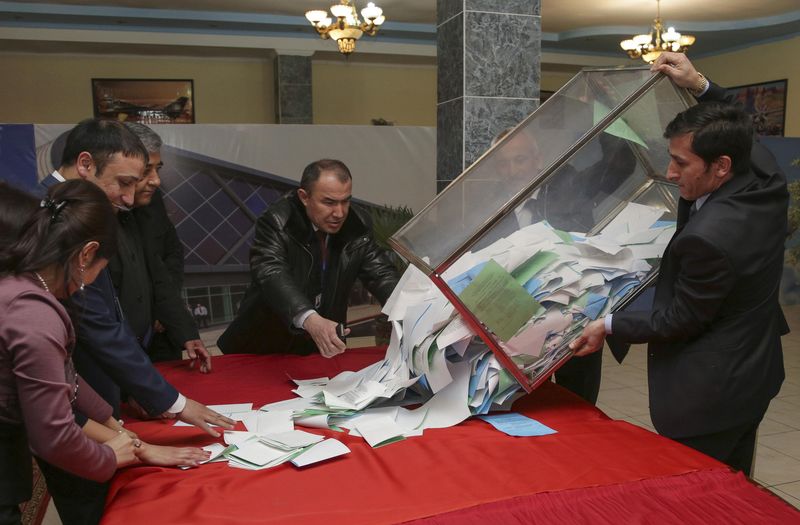DUSHANBE (Reuters) - Tajikistan's veteran President Imomali Rakhmon looked set on Monday to dominate parliament for another five years after his party took a strong lead in an election Western observers said was stacked in his favour.
The central election commission, announcing first results from Sunday's general election, said on Monday his People's Democratic Party of Tajikistan had won 65.2 percent of the party list votes, which account for about one-third of the seats in the lower house of parliament.
No information was available yet on results from direct mandate constituencies, which make up the rest of the 63-seat lower house, but observers expect Rakhmon loyalists to win most of those races as well.
The Islamic Revival Party of Tajikistan, the main opposition group in the impoverished Central Asian nation of 8 million, failed to win the minimum five percent of votes nationwide needed to win party list seats, official data showed.
Tajikistan, led by Rakhmon since 1992, has never held an election judged to be free and fair by the West.
The campaign this time was marred by restrictions on candidates allowed to run and access to the media, said a monitoring delegation of the Organisation for Security and Cooperation in Europe (OSCE) and the European Parliament.
"More than half of the vote counts observed were assessed negatively," they added in a statement. Tajik officials could not be immediately reached for comment.
The monitors said this vote was better than earlier ones, but did not provide a level playing field for all candidates.
"While we have noted some improvements, for example in the election law, the advantages of incumbency were still misused," said Geir Joergen Bekkevold, head of the OSCE Parliamentary Assembly delegation.
"Greater equal treatment in law and in fact for all political forces is required for Tajikistan to live up to its democratic commitments," he said.
Rakhmon, 62, an ex-Soviet state farm boss, keeps the country's small and disparate opposition in check. He received military assistance from Russia to defeat Islamist guerrillas in a 1992-97 civil war that killed tens of thousands of people.

Russia keeps about 6,000 troops - its largest land force deployed abroad - in the Muslim nation bordering Afghanistan and China. More than a million Tajiks work in Russia, sending home cash that helps keep the struggling economy afloat.